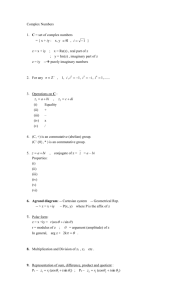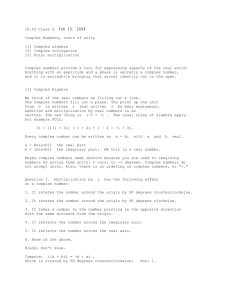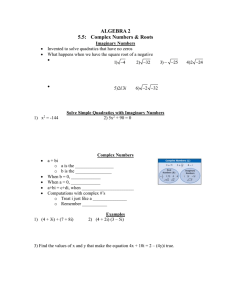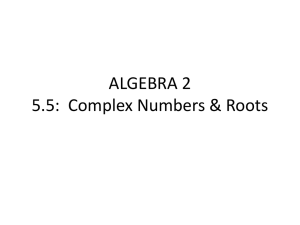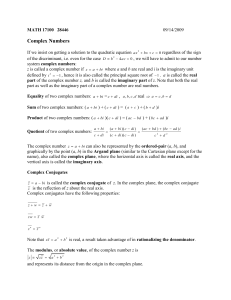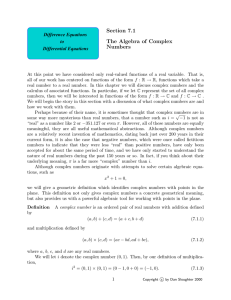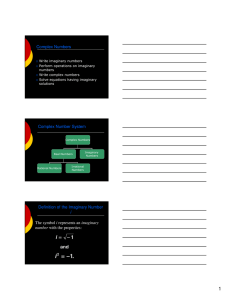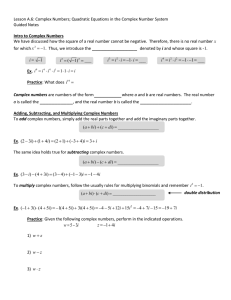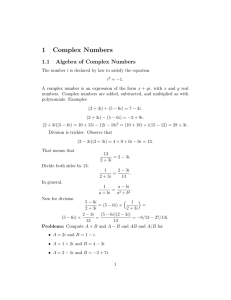MATH 223 Complex Numbers II
advertisement
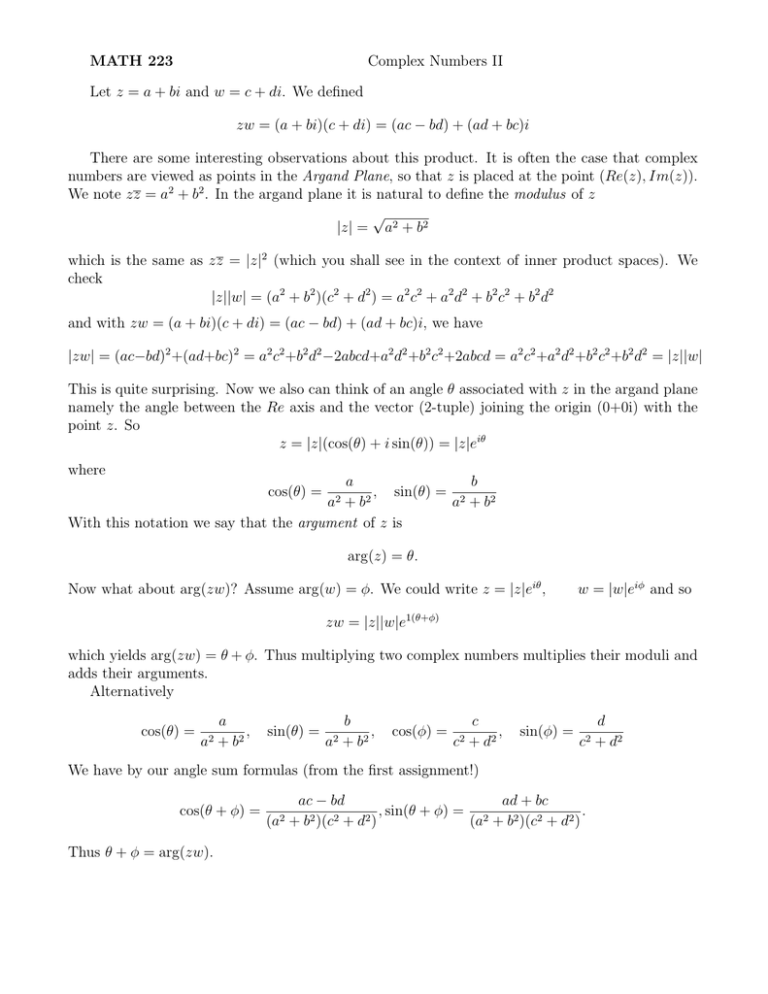
MATH 223 Complex Numbers II Let z = a + bi and w = c + di. We defined zw = (a + bi)(c + di) = (ac − bd) + (ad + bc)i There are some interesting observations about this product. It is often the case that complex numbers are viewed as points in the Argand Plane, so that z is placed at the point (Re(z), Im(z)). We note zz = a2 + b2 . In the argand plane it is natural to define the modulus of z √ |z| = a2 + b2 which is the same as zz = |z|2 (which you shall see in the context of inner product spaces). We check |z||w| = (a2 + b2 )(c2 + d2 ) = a2 c2 + a2 d2 + b2 c2 + b2 d2 and with zw = (a + bi)(c + di) = (ac − bd) + (ad + bc)i, we have |zw| = (ac−bd)2 +(ad+bc)2 = a2 c2 +b2 d2 −2abcd+a2 d2 +b2 c2 +2abcd = a2 c2 +a2 d2 +b2 c2 +b2 d2 = |z||w| This is quite surprising. Now we also can think of an angle θ associated with z in the argand plane namely the angle between the Re axis and the vector (2-tuple) joining the origin (0+0i) with the point z. So z = |z|(cos(θ) + i sin(θ)) = |z|eiθ where b a , sin(θ) = a2 + b 2 a2 + b 2 With this notation we say that the argument of z is cos(θ) = arg(z) = θ. Now what about arg(zw)? Assume arg(w) = φ. We could write z = |z|eiθ , w = |w|eiφ and so zw = |z||w|e1(θ+φ) which yields arg(zw) = θ + φ. Thus multiplying two complex numbers multiplies their moduli and adds their arguments. Alternatively cos(θ) = a2 a , + b2 sin(θ) = a2 b , + b2 cos(φ) = c2 c , + d2 sin(φ) = c2 We have by our angle sum formulas (from the first assignment!) cos(θ + φ) = Thus θ + φ = arg(zw). (a2 ac − bd ad + bc , sin(θ + φ) = 2 . 2 2 2 + b )(c + d ) (a + b2 )(c2 + d2 ) d + d2
